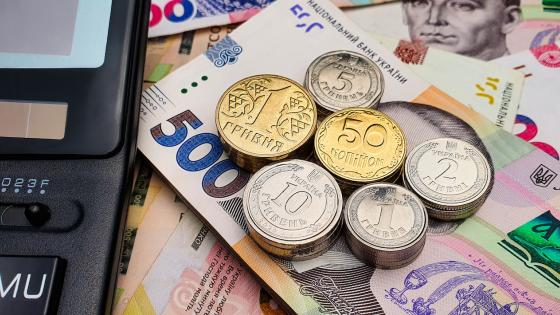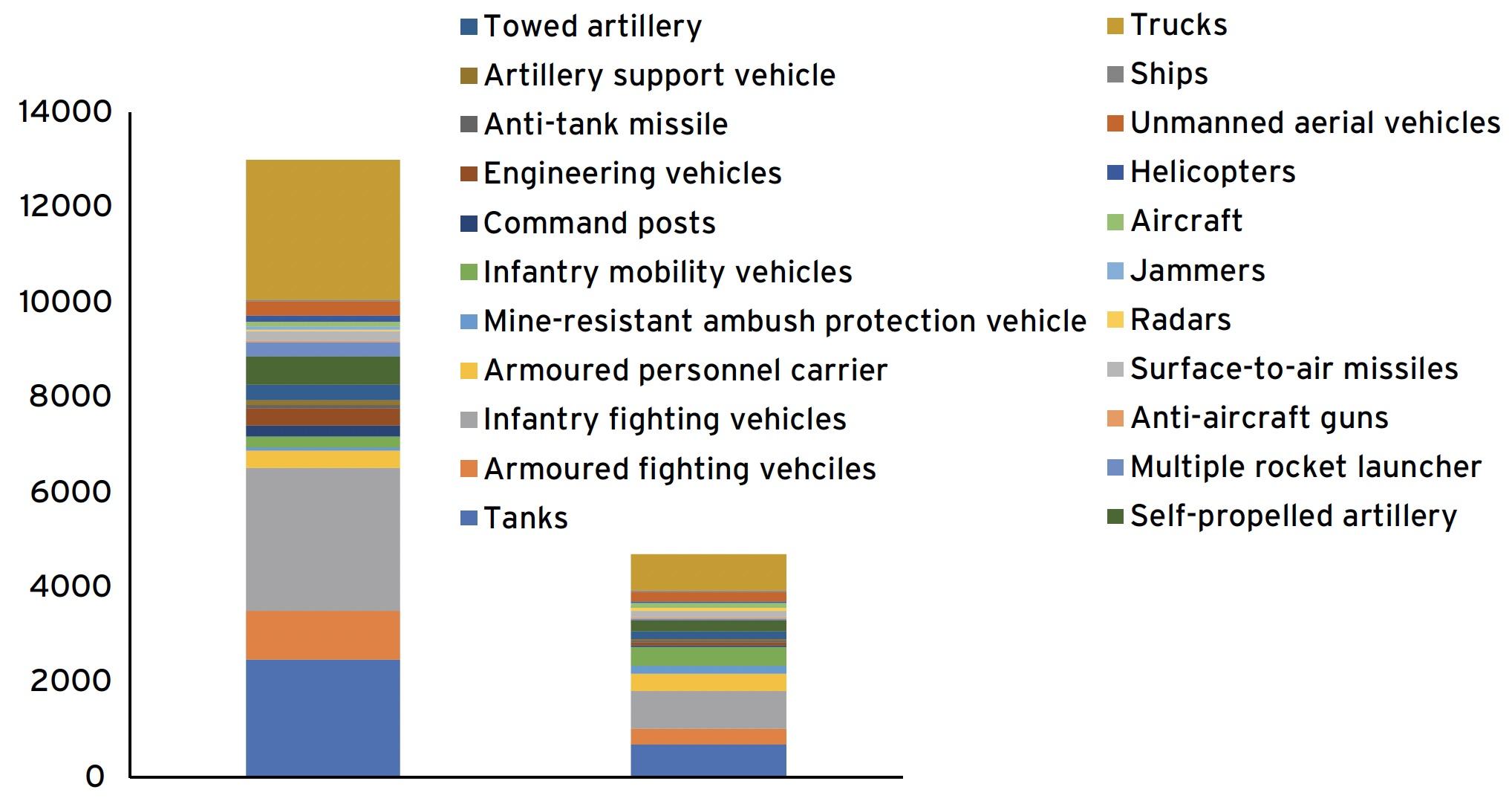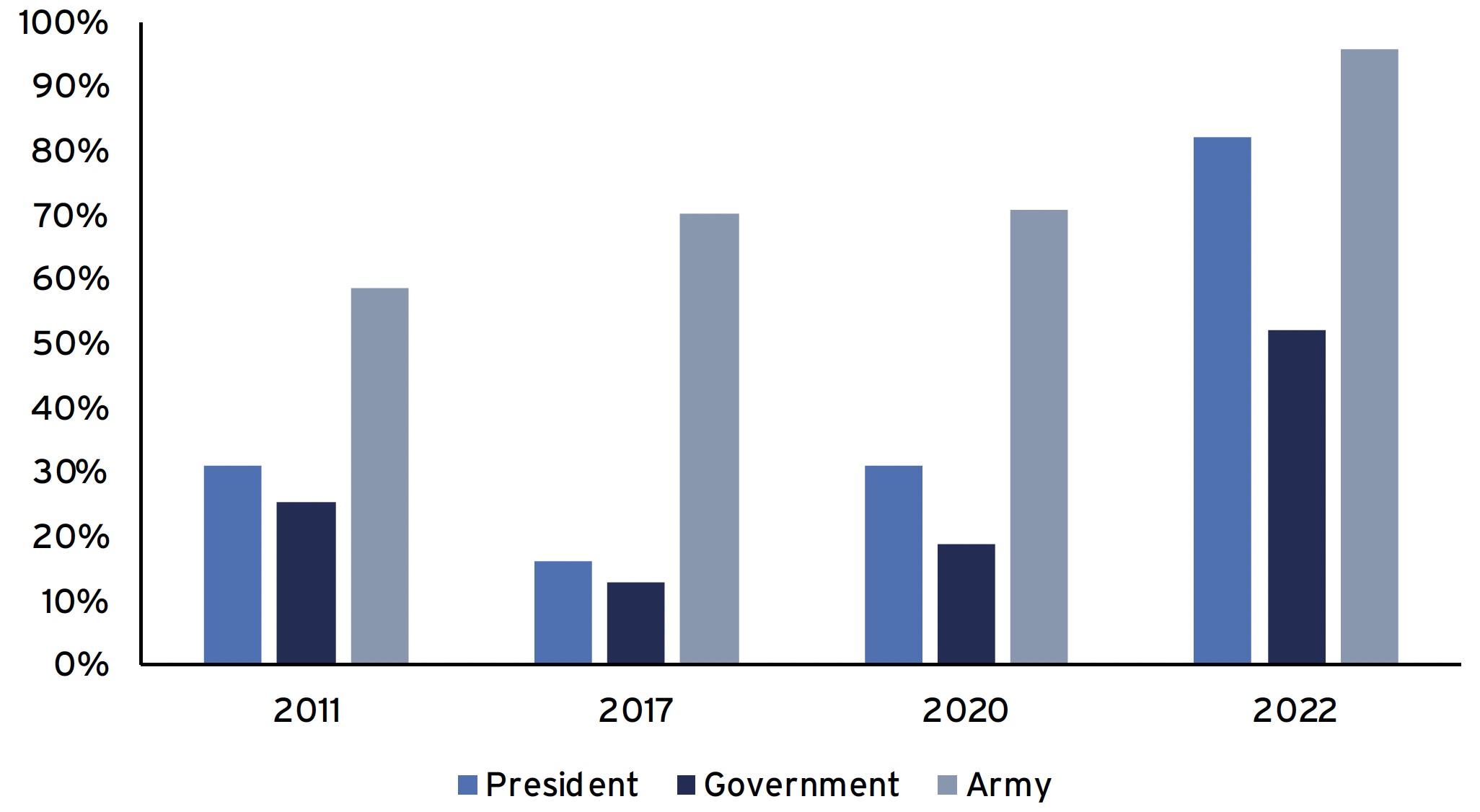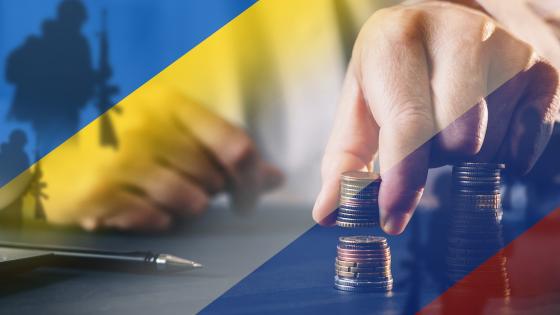First, we propose a ‘financing democracy’ deal with partners, where Ukraine commits to (1) democratic constitutional order and elimination of corruption (‘rule of the people and rule of law’); (2) defence (‘standing on our own two feet’); and (3) self-reliance (‘paying our own way’) once the war is over and reconstruction is complete.
To address concerns about corruption, Ukraine should implement a comprehensive programme of action, as well as adopt EU standards. On the demand side, much of the corruption in Eastern Europe since the fall of the Soviet Union has been fuelled by businessmen (often called oligarchs) who captured control over key assets in the transition from communism, and then used their disproportionate resources to influence legal and political decisions, undermining the rule of law. We therefore see it as critical to constrain the political role of business, including through measures to: (1) increase competition and reduce monopoly rents across the economy; (2) increase transparency of beneficial ownership, and introduce security vetting in sensitive sectors, particularly for media assets; (3) reduce incentives for political parties to seek funding from oligarchs; (4) provide transparent transfers to industry, if warranted by policy, and avoid hidden or open-ended subsidies; (5) enforce strong corporate governance standards for state-owned enterprises that cannot be privatised; (6) ensure transparent public procurement on recovery projects funded by the state budget and donors; and (7) ensure consistent implementation of the law, with effective sanctions to deter corrupt behaviour. On the supply side, we propose to restrict the ‘provision of corrupt services’ by increasing the cost and risk of providing them, including through a ‘higher standards for higher reward’ deal for officials.
In terms of self-reliance, we see at least three areas that may challenge the long-term sustainability of Ukraine’s public finances: weak fiscal capacity, the pension and social support system, and energy subsidies. In terms of fiscal policy, we propose that Ukraine should commit, once reconstruction is complete, to funding current spending from current receipts, and take early steps to make this goal credible. The Government of Ukraine has already started planning such measures as a part of the National Revenue Strategy. There will be reforms of the tax administration and customs office to deliver improved tax enforcement, alongside tax policy reforms to broaden the tax bases, with elimination of special schemes and reduction in tax expenditures. The rates on some major taxes, such as taxes on higher incomes and luxury consumption, can be raised. One possible approach is to levy an income tax surcharge on higher incomes, similar to the solidarity surcharge on higher incomes in Germany used to fund reunification. Over time, the excise taxes on fuel, alcohol, and tobacco will be increased to reach minimum EU rates. There is also a difference between Ukrainian and European rates of VAT, and the VAT rate in Ukraine might have to be aligned with those of the EU. Fiscal self-reliance will also require changes to the pension and social support system. In particular, in the process of EU accession, the Ukrainian retirement age will be progressively aligned with retirement ages in the EU and the pension system is expected to move to a ‘notional defined contribution’ basis, while Ukraine will be expected to set energy tariffs that fully recover costs, including adopting the European carbon price (currently around €80/tonne).
Second, we propose a framework of cooperation with donors to manage the inevitable tensions that will arise over the extended period of extraordinary needs. With input and oversight from partners, Ukraine should be trusted to draw up, implement and report on a credible reconstruction plan. Alongside ongoing oversight, partners should commit to: (1) delivery of promised resources, initially grant-centred and front-loaded; (2) appropriate conditionality, aligned with the reconstruction plan; and (3) partner coordination, so efforts are aligned across partners.
The last point is a sensitive area, where different agencies will have varying mandates and there will be some duplication and tension. However, we see a strong case for more institutionalised support – notably, an agency dedicated to Ukraine’s reconstruction with political heavyweights who represent partners appointed to lead the agency. Apart from providing the key interface between partners and Ukraine, so Ukraine does not have to negotiate and interface with multiple partners simultaneously, the agency can aggregate information, mobilise expertise from multiple agencies (e.g. the IMF for macroeconomics, the World Bank for infrastructure projects, the EBRD/IFC for private sector involvement), harmonise requirements, ensure consistency of practice, and provide continuity of staff and institutional memory.
Furthermore, appointing credible and respected figures to lead the agency (e.g. Bob Zoellick, the former World Bank President, or Mario Draghi, former ECB President) and perform the high-level negotiating and representative roles could help. These officials would be responsible for communicating to partners and taking their concerns and priorities on board so that their discussions with the Ukrainian government become a central locus for donor–Ukraine interaction and programme adjustment.
In conclusion, why do we propose a new deal with allies, when Ukraine already has an ongoing IMF programme and EU support coming through the Ukraine Financing Facility (UFF)? We think a broader political agreement with partners is needed, since Ukraine’s democratic and security ambitions are political goals that go beyond the technical remit of the IMF and which should encompass all the world’s leading democracies, including the US, UK, and Japan, as well as the EU. It also reflects the scale and duration of the financing challenge.
References
Shapoval, N, J Nell, T Mylovanov, Y Gorodnichenko, O Bilan and T Becker (2022), “Financing Ukraine's Victory”, CEPR Policy Insight No 118.
World Bank (2023), “Ukraine Rapid Damage and Needs Assessment : February 2022 - February 2023”.
Becker, T, O Bilan, B Eichengreen, V Dombrovskis, A Fedyk, Y Gorodnichenko, P N Mohacsi, T Mylovanov, J Nell, N Shapoval, I Sologub, G Roland, and B Weder di Mauro (2023), “Financing Democracy: Why and How Partners Should Support Ukraine”, CEPR Policy Insight No 124.










